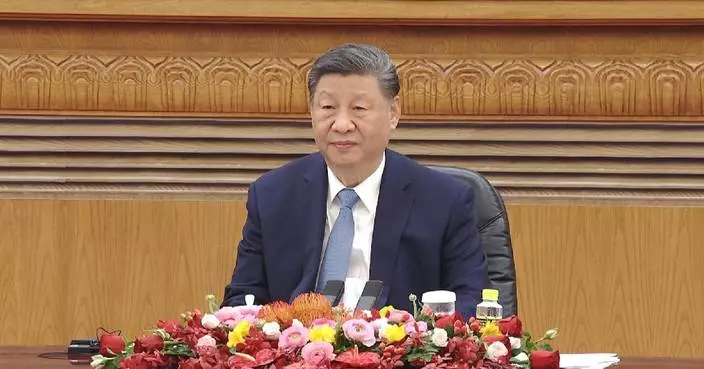Mark Pinkstone/Former Chief Information Officer of HK government
Former chairman of Morgan Stanley Asia, Stephen Roach and his merry men of doomsayers must be choking over their breakfast when reading the morning news that Hong Kong had secured third placing in the Global Financial Centres Index (GFCI) and close on the heels of top notchers, New York and London.
Hong Kong was also top dog in the Asia-Pacific region, regaining its position by tipping Singapore by two points.
Earlier in the year Roach wrote in the China-bashing Financial Times that “Hong Kong is now over” and that the “wheels came off” during the 2019-20 “massive pro-democracy demonstrations,” which were, in reality, full blown riots causing death, serious injuries and loss of property through arson attacks.
And he repeated his forecast later during a talk at the Foreign Correspondents’ Club in Hong Kong after receiving severe criticism for his earlier comments. He was highly indignant about the criticism, and the talk was to solidify his views. But he was wrong. Again.
Roach and others live in a world of numbers without the “HR.2” factors – human resources and resilience. They look at the trajectory of the stock market and other financial indicators only, without considering the Hong Kong “HR.2” factors.
The Hong Kong government noted that the scores in the index were rated among the top in various areas of competitiveness, including 'business environment', 'human capital', 'infrastructure', and 'reputational and general'. Hong Kong's rankings in various financial industry sectors also rose significantly, including 'investment management', 'insurance', 'banking' and 'professional services'. Among them, the ranking in 'investment management' advanced to first globally. In addition, the report assessed the financial centres' fintech offerings, and Hong Kong's ranking rose five places to ninth, making it among the top 10 fintech hubs.
That is, indeed, quite an achievement. Yes, Hong Kong has had its fair share of troubles which were seized upon by the US-led doomsayers. We had the 2019-20 bloody riots, fuelled by the US State Department’s National Endowment for Democracy (NED), followed by COVID-19 and a sluggish financial clawback. Hong Kong may be down, but not out.
Today, in a remarkable comeback, Hong Kong's asset and wealth management business is booming, with assets under management growing by about two per cent from the previous year to more than HK$31 trillion (US$4 trillion) by end-2023. Net fund inflows reached HK$390 billion (US$50 billion), representing a year-on-year increase of over 3.4 times. The development of the family office business in Hong Kong continues to gain momentum. The New Capital Investment Entrant Scheme has continued to receive overwhelming response since its launch in March, with more than 550 applications received so far. It is expected to bring in more than HK$16.5 billion (US$2.11 billion) in investments to Hong Kong.
The Global Financial Centres Index (GFCI) ranks the competitiveness of financial centres based on over 29,000 assessments from an online questionnaire and over 100 indices from organisations such as the World Bank, the Organisation for Economic Co-operation and Development (OECD), and the Economist Intelligence Unit. The first index was published in March 2007. It has been jointly published twice per year by the London-based think tank Z/Yen and the China Development Institute since 2015. It is widely quoted as a top source for ranking financial centres.
In its latest bi-annual report, GFCI listed New York first with 763 points, London 750 and only one point behind is Hong Kong third at 749 points, Singapore fourth, Shanghai eighth, and Shenzhen ninth. London is now the only European centre in the top 10 after Shenzhen replaced Seoul and Frankfurt in the top 10. Of the top 10 places, Asia has four, equalling the US.
In the various sub-rankings, Singapore beat Hong Kong by one point in the FinTech industry. However, this could change in the forthcoming years as Hong Kong develops the Northern Metropolis as a major technology hub with synergies linking similar activities across the boundary river with Shenzhen. FinTech (financial technology) is a catch-all term referring to software, mobile applications and other technologies created to improve and automate traditional forms of finance for businesses and consumers alike. Good examples are PayPal, which is way ahead of the game, and Uber money, a fintech app that includes Uber wallet, debit and credit cards etc..
The Hong Kong SAR government noted that the report “clearly affirms Hong Kong’s status and strengths as a leading global financial centre… As an international financial centre, Hong Kong brings together the world's top financial institutions and talent, provides professional financial services, and owns a deep and broad capital market. Our regulatory system aligns with those of major overseas markets, with the free flow of information and capital. Under 'one country, two systems', Hong Kong's unique position of having the strong support of the motherland while being closely connected to the world, empowers us to fully leverage our role as a 'super connector' and 'super value-adder'.
For the doubters of Hong Kong, it is not easy to kill Hong Kong with a few well-worn cliches and sound bites. Hong Kong has proven time and again that we are here to stay.
Mark Pinkstone
** The blog article is the sole responsibility of the author and does not represent the position of our company. **












































